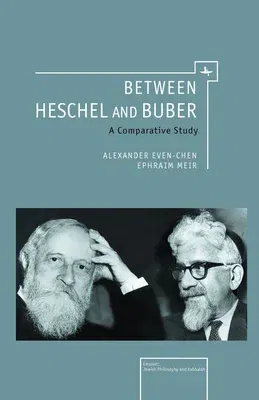Alexander Even-Chen
(Author)Between Heschel and Buber: A Comparative StudyHardcover, 1 October 2012

Qty
1
Turbo
Ships in 2 - 3 days
In Stock
Free Delivery
Cash on Delivery
15 Days
Free Returns
Secure Checkout

Part of Series
Emunot: Jewish Philosophy and Kabbalah
Print Length
320 pages
Language
English
Publisher
Academic Studies Press
Date Published
1 Oct 2012
ISBN-10
1936235722
ISBN-13
9781936235728
Description
Product Details
Authors:
Book Format:
Hardcover
Country of Origin:
US
Date Published:
1 October 2012
Dimensions:
23.62 x
16 x
2.54 cm
ISBN-10:
1936235722
ISBN-13:
9781936235728
Language:
English
Location:
Boston, MA
Pages:
320
Publisher:
Weight:
612.35 gm